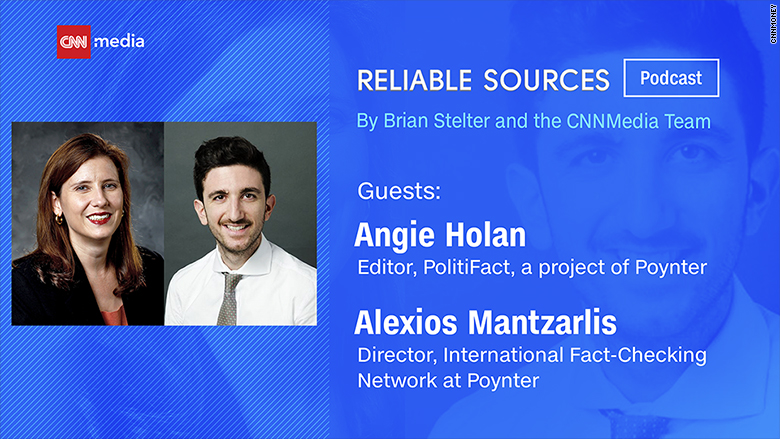
The relationship between journalist and reader is changing in this era of misinformation.
"We see increasingly audiences are sort of expecting from the media not so much to be newsmakers, but news verifiers," said Alexios Mantzarlis, director of the International Fact-Checking Network at Poynter Institute.
"The necessity to cover everything at all times has gone, and now the necessity to sort of make sure that readers know the important facts about what's happening has become a more central part of every reporter's job," he said.
Journalists reporting on the shooting in Parkland, Florida, last month, for example, needed to verify which photos, updates, and videos shared on Twitter were from credible sources.
"How do you know which one is a student and how do you know which tweets are not actually coming from Parkland?" Mantzarlis said. "That's the sort of intermediating role that I think users are now expecting in all this noise and all this news... They're demanding someone to accompany them and sort fact from fiction."
Mantzarlis, along with PolitiFact editor Angie Holan, spoke to Brian Stelter ahead of IFCN's International Fact-Checking Day on April 2 about the prominence of false news and the importance of media literacy for this week's Reliable Sources podcast.
Listen to the whole podcast here:
The current era of fact-checking is both "the best of times and the worst of times," Holan said.
"We have more tools than ever at our disposal. We can do deep internet dives. We can do online searches for experts anywhere in the world and get them on the phone, talk to them via Skype," she said. "But on the other hand, there's a lot of misinformation out there... When I talk to readers or speak at public events, I just get a real sense of frustration from everyday citizens who say, 'I just don't know what to believe.'"
Fact-checkers and journalists alike can help audiences discern between true and false information, but one of the goals of International Fact-Checking Day is to show that users can do this work for themselves, too.
"Fact-checking isn't just for fact-checkers," Mantzarlis said. "We don't want to have just one group working on this. We want all of us to have those skills, whether as news consumers, as librarians, as teachers."
Simple tips, like double-checking a link's URL and examining email addresses tied to phishing, can help digital news consumers ensure they're reading and sharing well-sourced information, Holan said.
And Mantzarlis said it's important to open a link before sharing it and to conduct reverse-image searches to locate the original source of a photo or video. He said he asks attendees of his public talks if they know how to do the latter.
"The smallest amount of hands go up," he said. "Of course if I asked them before, 'How many of you are on Facebook or how many of you search information on Google?' most hands shoot up. So I think we're still really lacking some of the very basic tools, tools that take a few seconds to implement, that would take us, I think, a good step forward."
Even as false information piles up on multiple platforms, however, not all hope is lost.
"We're maybe fact resistant, but not fact immune," Mantzarlis said.
Holan shares that optimism.
"The thing that makes me optimistic is that people are aware there is a problem now," Holan said. "And I think that's huge. I think a couple of years ago we had some kind of magical thinking that because it was the internet, and it was new and cool, everything would be fun and smart and accurate. And I think now everybody is aware that the internet has the dark side, and that when you go on the web you can't take anything for granted."


